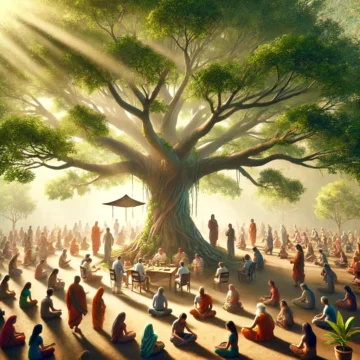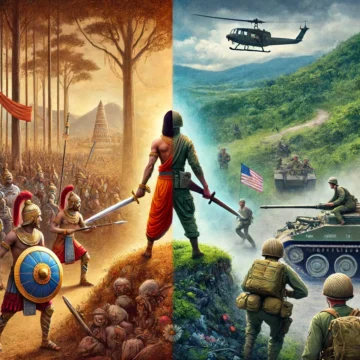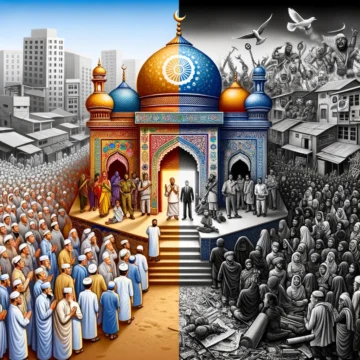Explore the profound teachings of Sanatana Dharma, which emphasize inclusivity and collective well-being through ancient scriptures. This blog delves into how these principles of Hindu philosophy resonate with modern societal challenges, fostering peace and unity across diverse communities under the symbolic shelter of an ancient, all-encompassing tree.
Dharma and Ethics: Scrutinizing Warfare Through Ancient Wisdom
Exploring the application of Dharma in warfare, this essay delves into the ancient Mahabharata and modern conflicts like Vietnam's 'Hamburger Hill'. It examines how Dharma guides ethical decision-making in warfare, emphasizing the balance between moral imperatives and military objectives, and the pursuit of righteousness over strategic gains.
This Week in History: Moments from 19th Week of Year
This Week in History unfolds the tapestry of significant events that have not only shaped India but also the world, illuminating their impact on contemporary society. The Mutiny of 1857, often hailed as the First War of Indian Independence, marked a turning point in India's colonial history, sparking a series of changes in British governance and sowing the seeds for future independence movements. Similarly, the world witnessed pivotal cultural shifts, such as the release of The Beatles' documentary 'Let It Be,' capturing the final notes of their cooperation before their breakup. These historical events, from uprisings to cultural revolutions, are not merely past occurrences but active dialogues that continue to influence today’s societal values and global perspectives.
Muslim Population Growth and Its Global Impact
On May 11, 2000, India's population officially reached a significant milestone, hitting the 1 billion mark. This historic event was symbolized by the birth of Astha Arora, named India's billionth baby. The demographic landscape of India, particularly the rapid growth of the Muslim population compared to the Hindu population, has been a topic of considerable interest and debate. Reports project that by 2050, India will have the largest Muslim population globally, with significant implications for political dynamics and societal structures. This blog explores the broader socio-political implications of India's population growth, the factors driving these demographic shifts, and the complex interplay between religious identity and modern societal challenges. It challenges the notion that socioeconomic factors alone dictate population growth, highlighting the significant role of cultural and religious values. The analysis extends to demographic trends in Europe and the United States, where higher fertility rates and migration patterns contribute to the growing Muslim population. Understanding these trends is crucial for developing informed policies that address the diverse needs of growing populations, ensuring sustainable development and social harmony.





